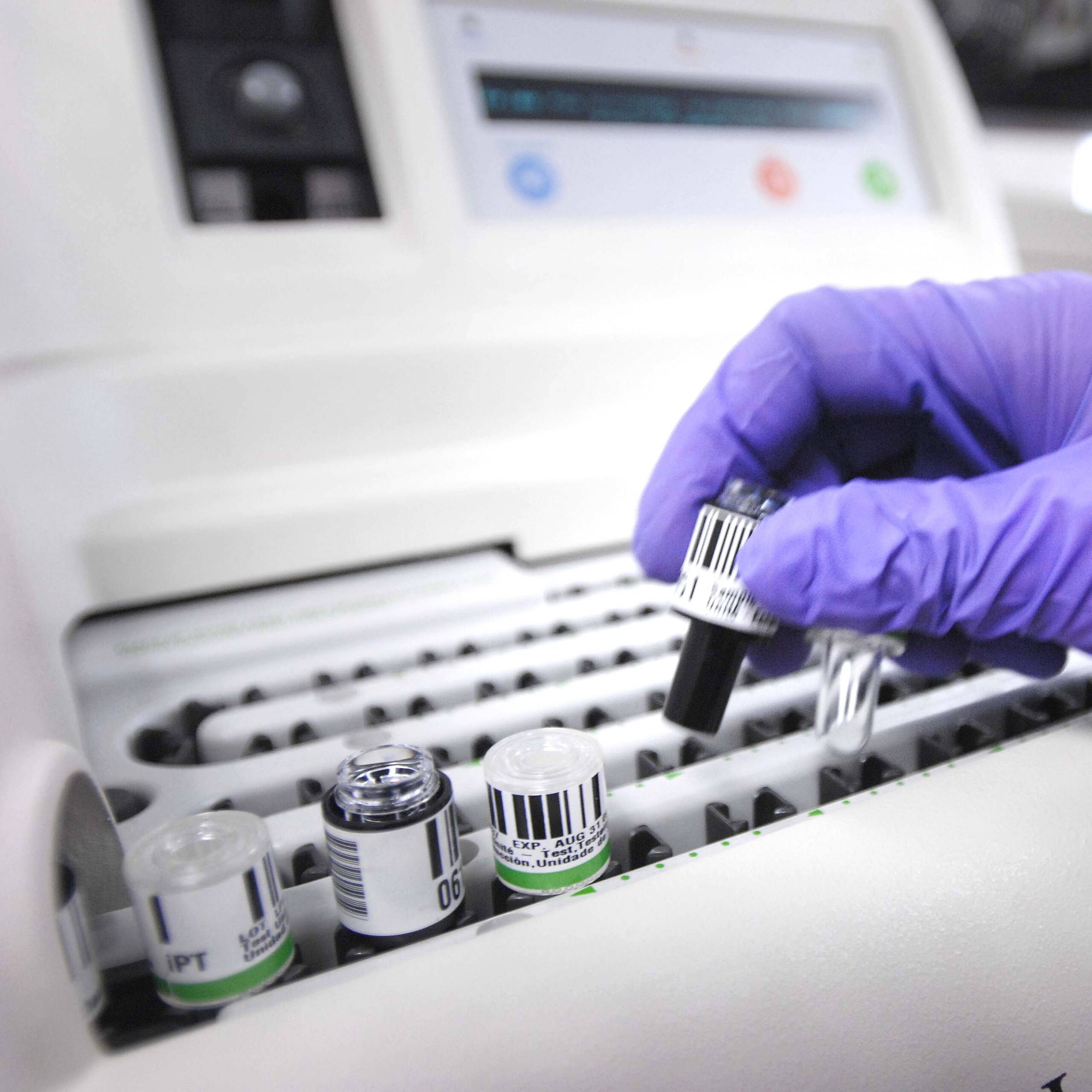Hormone tests
Why is laboratory testing important?
Laboratory tests can help identify or, where appropriate, rule out the underlying diseases.
However, it is important to highlight that the result of a laboratory test does not in itself constitute a diagnosis, only the results are included in the finding. You will receive the diagnosis, therapy or treatment recommendation from your specialist or treating physician who ordered the laboratory tests.
Contact your doctor with all laboratory test results.

Hormone tests
The body’s endocrine glands (pituitary gland, thyroid gland, parathyroid gland, pancreas, adrenal gland, ovary, testis) produce hormones that affect the functioning of the given area. Hormones regulate metabolism and reproduction.
Insulin is the hormone responsible for carbohydrate metabolism, the hormones produced by the thyroid gland (TSH, FT3, FT4, anti-TPO, anti-TG, Thyreoglobulin) control metabolic processes, regulate our body temperature, oxygen consumption, heart, nervous system and stomach and intestinal function.
Female (Estrogen, Progesterone, LH, FSH, Prolactin) and male sex hormones (Testosterone, FSH, LH, SGBH) are responsible for the development of secondary sexual characteristics and fertility.
Elérhető vizsgálatok
17-OH Progesterone
ACTH
ADH (CT-pro-Vasopressin)
Adiponectin
Aldosterone
AMH
Androstenedione
anti-TG (anti-thyroglobulin)
anti-TPO (anti-thyroid peroxidase)
Beta CrossLaps (Beta-CTx)
Beta hCG
C-peptide
Cortisol
DHEA Sulfate (DHEA-S)
Dihydrotestosterone (DHT)
Erythropoetin
FSH
FT3
FT4
Growth hormone (GH)
HOMA index
Insulin-like Growth Factor-1 (IGF-1)
Inhibin B
Insulin
Calcitonin
Catecholamines from urine (adrenaline, dopamine, noradrenaline)
Catecholamines from blood (adrenaline, dopamine, noradrenaline)
Combinated test 12th week pregnancy (free ß-HCG + PAPP-A)
Leptin
LH
Estradiol
Parathyroid Hormone (PTH)
Progesterone
Prolactin
Renin
Reverse T3
SHBG
Testosterone
Thyroglobulin
Total T3
Total and free testosterone
TRAK
TSH
